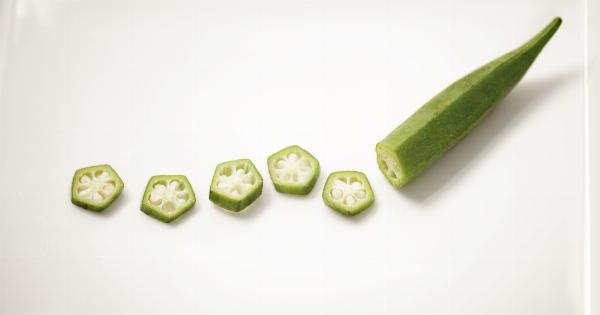Eating vegetables is essential for maintaining good health. They are packed with essential vitamins, minerals, and fiber that promote overall well-being.
Incorporating a variety of vegetables into your diet can help strengthen your immune system, improve digestion, and boost your energy levels. In this article, we have compiled a list of 30 vegetables that you should consider adding to your daily meals for a stronger and healthier you.
1. Broccoli
Broccoli is a cruciferous vegetable that is rich in vitamin C, vitamin K, and fiber. It also contains compounds that may help reduce the risk of certain types of cancer. Include broccoli in stir-fries, salads, or steam it for a nutritious side dish.
2. Spinach
Spinach is packed with iron, vitamin A, vitamin C, and folate. It is low in calories, making it an excellent choice for weight management. Incorporate spinach into your smoothies, omelets, or sauté it with garlic for a delicious side.
3. Carrots
Carrots are rich in beta-carotene, which is converted into vitamin A in the body. They are also a good source of fiber, potassium, and antioxidants. Enjoy carrots raw as a snack, add them to soups, or roast them for a tasty side dish.
4. Bell Peppers
Bell peppers are a colorful addition to any meal. They are high in vitamin C and other antioxidants that can support a healthy immune system. Add them to salads, stir-fries, or stuff them for a nutritious and flavorful meal.
5. Kale
Kale is one of the most nutrient-dense vegetables. It is an excellent source of vitamin K, vitamin C, and antioxidants. Include kale in your salads, soups, or make delicious kale chips by baking them with a touch of olive oil and seasoning.
6. Tomatoes
Tomatoes are rich in lycopene, a powerful antioxidant that may help protect against certain types of cancer. They are also a good source of vitamin C. Add tomatoes to salads, sandwiches, or cook them into a tasty sauce or soup.
7. Sweet Potatoes
Sweet potatoes are packed with beta-carotene, fiber, vitamin C, and potassium. They are a great alternative to regular potatoes and can be baked, roasted, or mashed for a delicious and nutritious side dish.
8. Cauliflower
Cauliflower is a versatile vegetable that is high in fiber, vitamin C, and antioxidants. It can be roasted, mashed, or even used as a low-carb alternative to rice or pizza crust. Get creative and experiment with different cauliflower recipes.
9. Cucumbers
Cucumbers are hydrating vegetables that are low in calories. They are also a good source of vitamin K and antioxidants. Enjoy cucumbers in salads, sandwiches, or make refreshing cucumber-infused water.
10. Zucchini
Zucchini is a summer squash that is low in calories and high in vitamins A and C. It can be grilled, sautéed, or spiralized into zucchini noodles for a healthy pasta alternative.
11. Brussels Sprouts
Brussels sprouts are nutrient-dense vegetables that are rich in fiber, vitamins C and K, and antioxidants. Roast them with olive oil and seasonings for a delicious side dish.
12. Asparagus
Asparagus is a spring vegetable that is loaded with folate, vitamin K, and antioxidants. It can be steamed, roasted, or grilled for a flavorful side dish.
13. Eggplant
Eggplant is a versatile vegetable that is rich in fiber and antioxidants. It can be roasted, grilled, or used as a main ingredient in dishes like eggplant parmesan.
14. Green Beans
Green beans are low in calories and high in fiber, vitamin C, and potassium. They can be steamed, sautéed, or added to salads for a nutritious boost.
15. Cabbage
Cabbage is a cruciferous vegetable that is packed with vitamins C and K, as well as fiber. Enjoy cabbage in slaws, stir-fries, or fermented into sauerkraut for its probiotic benefits.
16. Beets
Beets are a vibrant root vegetable that is rich in fiber, folate, and manganese. They can be roasted, boiled, or grated raw into salads for a nutritious and colorful addition.
17. Onions
Onions are a staple in many cuisines and are packed with immune-boosting nutrients. They also contain antioxidants and anti-inflammatory compounds. Cook onions into soups, stews, or caramelize them for added sweetness.
18. Mushrooms
Mushrooms are low in calories and rich in various nutrients like vitamin D, B vitamins, and minerals. Enjoy mushrooms in stir-fries, soups, or sauté them as a side dish.
19. Radishes
Radishes are a crunchy vegetable that is high in vitamin C and antioxidants. They add a vibrant touch to salads and can be pickled for a tangy and refreshing snack.
20. Butternut Squash
Butternut squash is rich in fiber, vitamin C, and potassium. It makes a delicious soup, can be roasted as a side dish, or used in various dishes like risottos and casseroles.
21. Swiss Chard
Swiss chard is a leafy green vegetable that is packed with vitamins A, C, and K, as well as magnesium and potassium. Sauté Swiss chard with garlic and olive oil or add it to soups for a nutrient boost.
22. Peas
Peas are a good source of plant-based protein, fiber, and essential vitamins and minerals. Include peas in stir-fries, salads, or enjoy them as a side dish.
23. Radicchio
Radicchio is a bitter leafy vegetable that is rich in antioxidants and fiber. It adds a distinctive flavor to salads or can be grilled or roasted for a unique side dish.
24. Artichokes
Artichokes are nutrient-dense vegetables that are high in fiber, vitamin C, and antioxidants. Boil or steam artichokes and enjoy them with a savory dip for a delicious and healthy snack.
25. Celery
Celery is a hydrating vegetable that is low in calories and high in fiber. It can be enjoyed raw as a snack, added to salads, or used as a base in soups and stews.
26. Pumpkin
Pumpkin is rich in beta-carotene, fiber, and immune-boosting antioxidants. It can be roasted, pureed into soups, or used in baked goods like pumpkin muffins or pies.
27. Cilantro
Cilantro, also known as coriander, is an herb that is commonly used in various cuisines. It is rich in antioxidants and may have detoxifying properties. Add cilantro to salsas, salads, or use it as a garnish for a burst of freshness.
28. Green Peppers
Green peppers are a good source of vitamin C and antioxidants. They can be enjoyed raw in salads, stuffed for a flavorful meal, or added to stir-fries for some crunch.
29. Leeks
Leeks are a member of the onion family and offer a mild onion flavor. They are rich in vitamins A, C, and K, as well as iron and manganese. Use leeks in soups, quiches, or sauté them for a tasty side dish.
30. Watercress
Watercress is a leafy green vegetable that is packed with vitamins A and C, as well as calcium and iron. Add watercress to salads, sandwiches, or blend it into a refreshing green smoothie.
Conclusion
Incorporating a variety of vegetables into your diet is crucial for achieving optimal health and vitality. The 30 vegetables mentioned above offer a wide range of essential nutrients that can help strengthen your body and improve overall well-being.
Experiment with different recipes and cooking methods to enjoy the flavors and benefits of these vegetables. Remember, a stronger and healthier you starts with a plate full of colorful and nutritious vegetables!.






























